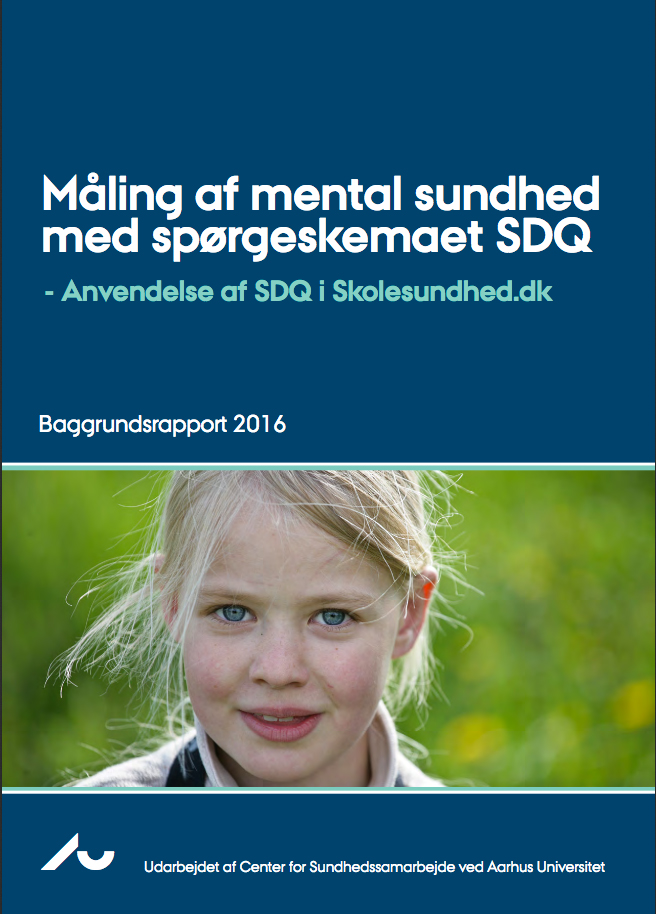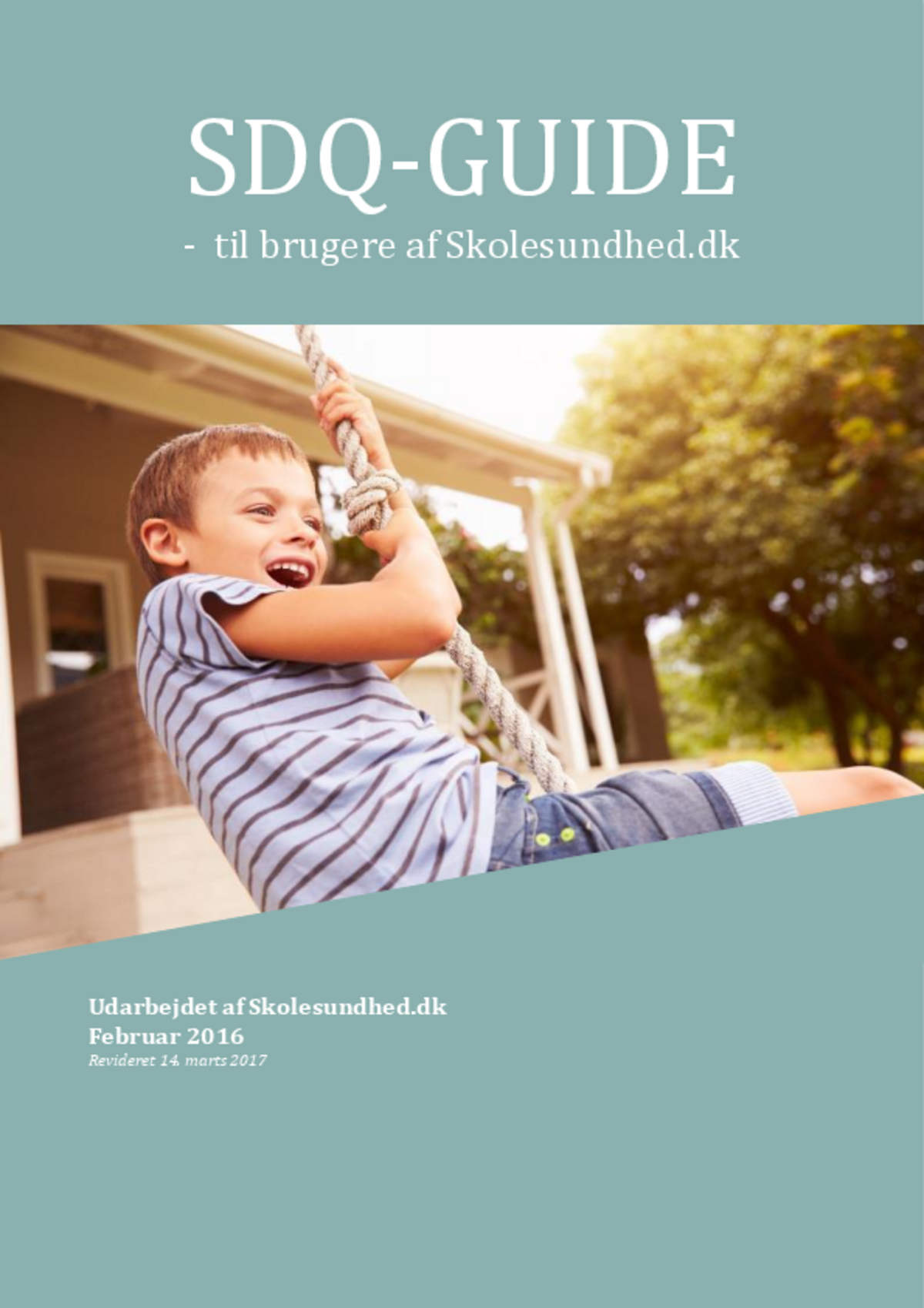Measuring mental health
Measuring of mental health
The research group Mindhood has both expertise in and experience with guidance and counseling of municipalities in connection with measuring mental health and identification of poor well-being.
Our researchers have profound knowledge about this field and about the use of the questionnaire SDQ.
Mindhood offers education of relevant professions and leaders in the use of SDQ and professional feedback and counseling in an actual implementation process.
The Strengths and Difficulties Questionnaire (SDQ) is a brief, well documented questionnaire, which can contribute to the assessment of mental health and to the identification of poor well-being of children and adolescents.
The questions in the SDQ ensure a systematic identification of the most central aspects of mental health and symptoms of poor well-being and furthermore uncover, if these symptoms cause problems in everyday life i.e. school/daycare, family and leisure time.
By the use of SDQ important knowledge from different angles is collected, and the SDQ thereby works as a strong professional tool for dialogue between professionals, family, and child.
The SDQ can therefore be used in a wide range of contexts within the municipalities to systematise and qualify the work that is already going on – no matter if this work is mono- or interdisciplinary.
We offer research based knowledge and counseling in:
Examination of mental health in schools and day facilities.
SDQ can be used in a general examination of mental health in schools and day care centers, however it can also be used on individuals in many contexts. For instance, the questionnaire can be part of the school health nurse’s work on specific years, as it contributes to the identification of children and adolescents with mental health problems.
Identification, examination and follow-up of vulnerable children and adolescents
The SDQ supports interdisciplinary cooperation about children with significant difficulties, as it works well as an interdisciplinary dialogue tool.
Similarly, social workers can use SDQ in their daily work with vulnerable children. The SDQ for strengthens the focus in the systematic child examination, and at the same time the questionnaire can help to ensure that significant child psychiatric issues and poor well-being are not overlooked – but on the contrary are discovered early in the process.
Furthermore, the SDQ can be used as a baseline for follow-ups in each case, and may be placed in conjunction with obligatory follow-ups of interventions put in to practice.
Health profiles on class- and group level
SDQ can be used at group level to provide an overview of a mental health profile for a specific class and thereby support the school healthcare nurse and the teachers in the work with well-being of the class.
Cases/references:
The SDQ as an instrument in the Social Services Department (Kolding)
In 2016 the Family Department in Kolding Municipality wanted to implement the SDQ as an instrument at an individual level for the examination and follow-ups of vulnerable children and adolescents. During this process we have been teaching staff, leaders and other professional partners in SDQ, as well as counseling, feedback and follow-up in the implementation process.
In cooperation with the Family Department we experienced that the SDQ can help to systematise and qualify the examination, follow-ups and dialogue in social workers’ practise. Employees and leaders in the Family Department express that the use of SDQ has made it easier for them to identify and focus on the main issues of the individual child. Thus, SDQ has helped to create more focus in the systematic child examination.
Measurement with SDQ at municipality level (Municipality Assens)
In 2015, the Municipality of Assens wanted to investigate the significance of a comprehensive reorganisation of the municipality’s special services for the well-being of children in general. Therefore, they chose, in cooperation with BDO, to carry out a measurement with SDQ in March 2015 on all children in municipal schools and day care facilities.
After the data collection Mindhood assisted with counseling on how can be used as a tool to identify children with special challenges, but also as an instrument to measure well-being in groups of children. Mindhood experts managed the collected data and participated in a number of dialogue meetings with the individual schools and institutions in relation to the translation and use of the local data.
"We have got some new perspectives on the well-being of children and pupils in the municipality of Assens and have become sharp on where to intervene and with which interventions."

